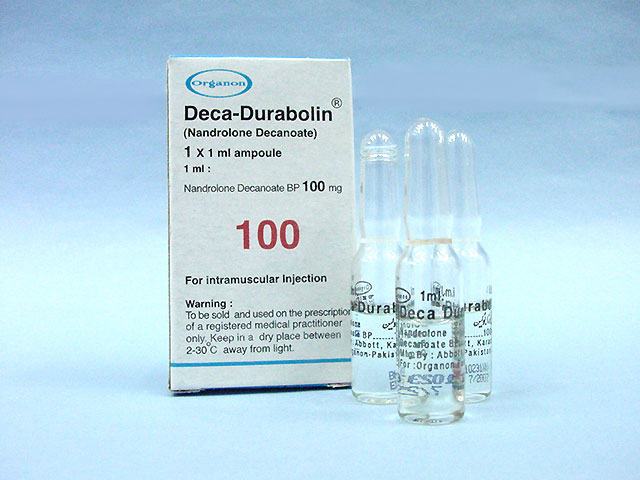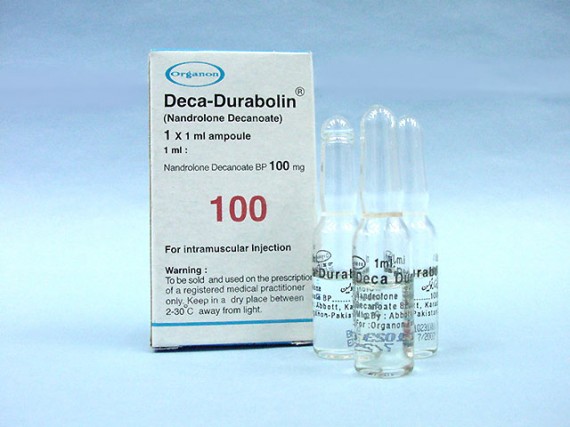
The scientific community is becoming increasingly excited by the therapeutic use of anabolic steroids for a variety of medical treatments. The same performance-enhancing effects that are demonized in society, and sports in particular, are celebrated for their therapeutic potential. The unfortunate war on steroids and resulting hysteria have regrettably delayed research into this class of medicines for decades. However, it appears the therapeutic value of steroids can not be overlooked indefinitely as scientific progress marches on in spite of morally-driven obstacles.
Eric Hohmann and colleagues at Central Queensland University experiemented with the use of the anabolic steroid nandrolone decanoate (trade name: Deca Durabolin) after total knee replacement surgery. They summed up the reason that anabolic steroids are a viable and interesting subject for scientific inquiry:
Recently there is an increasing interest in using anabolic steroids for medical conditions such as age related muscle wasting and increase muscle mass in patients with secondary wasting syndromes such as HIV. The main effects are positive anabolic actions on the musculoskeletal system influencing lean body mass, muscle size, strength, protein and bone metabolism and collagen synthesis. The effect is dose dependent and significant increases in strength occur only with doses of 300 mg testosterone or more. Side effects are rare and mostly benign and reversible.
Hohmann’s study involved a small group of elderly individuals undergoing total knee arthroplasty (knee replacement). The treatment protocol involved 50mg of nandrolone decanoate via intramuscular injection every two weeks for the 6 months; the control group received an equivalent volume injection containing an inert saline solution.
Many bodybuilders will be surprised to learn that such low dosages of Deca had any effect on strength. There may be several shortcomings to the study design. Nonetheless, the strength gains in the steroid group were significantly greater than those in the control group.
The strength gains didn’t translate directly to an improvement in functional tests. However, research has shown that post-operative strength is a good predictor of long-term prognosis after this type of surgery.
The strength gains were retained for 12 months – a full six months after discontinuation of the steroid cycle – and remained significantly better than the control group. The researchers did not observe any side effects from the nandrolone steroid cycle.
The researchers apparently did not account for any potential suppressive effects of nandrolone decanoate on the functioning of the hypothalamus-pituitary-testicular axis (HPT axis). It is unclear if they measured total testosterone, luteneizing hormone (LH), follicle stimulating hormone (FSH) or any other variables with laboratory blood tests.
According the Michael Scally, M.D., all anabolic steroids, and nandrolone in particular, are suppressive to the HPT axis. The degree of suppression varies in severity and duration. This causes a resulting condition known as anabolic steroid induced hypogonadism (ASIH) that is marked by a reduction in testosterone naturally produced by the body. ASIH is a side effect that is well-documented and easily treated.
It is possible that results could have been improved with a better steroid cycle design and a post cycle therapy protocol. Scally has described the failure of researchers to address ASIH as one of the major shortcomings of medical research into anabolic steroids.
Special thanks to Michael Scally, M.D. for his diligence in staying on top of anabolic steroid medical research and sharing this study with MESO-Rx.
Hohmann E, Tetsworth K, Hohmann S, Bryant AL. Anabolic steroids after total knee arthroplasty. A double blinded prospective pilot study. J Orthop Surg Res;5:93. Journal of Orthopaedic Surgery and Research.

About the author
Millard writes about anabolic steroids and performance enhancing drugs and their use and impact in sport and society. He discusses the medical and non-medical uses of anabolic-androgenic steroids while advocating a harm reduction approach to steroid education.

Leave a Reply
You must be logged in to post a comment.